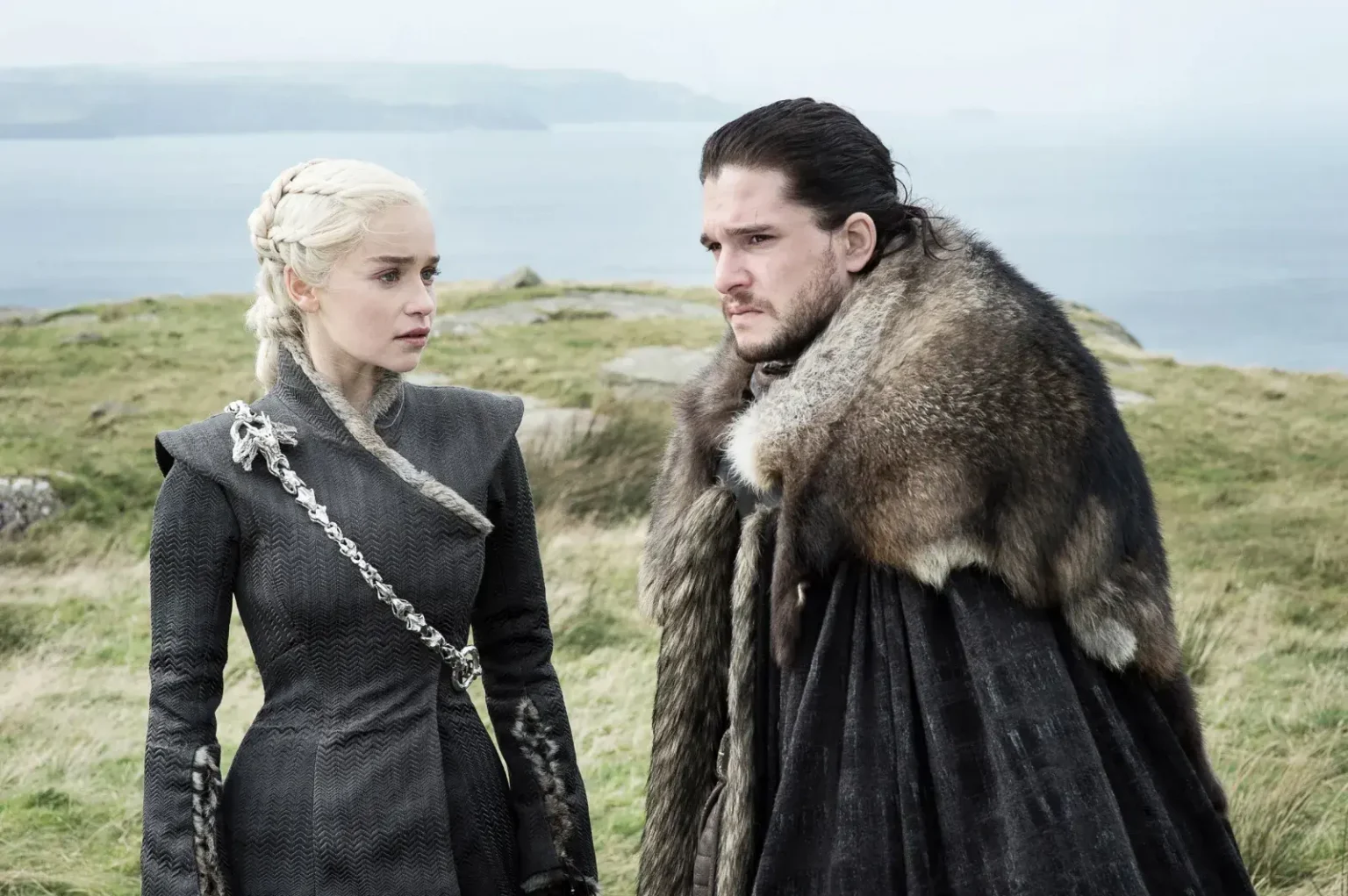When Game of Thrones ended in May 2019, it brought to a close not only eight seasons of television but a global cultural event. For a decade the series had dominated Sunday nights, turning medieval fantasy into mainstream spectacle. Yet its finale left fans split: some saw tragic inevitability, others saw betrayal of years of careful storytelling.
The Final Episode: Fire, Blood and a Fragile Peace
The last episode, The Iron Throne, opened in the ruins of King’s Landing. Daenerys Targaryen, having burned the city to ashes, spoke of continuing her campaign to “liberate” the world. Tyrion, horrified, resigned as Hand and was imprisoned. Jon Snow, caught between love and duty, confronted her in the throne room. In a quiet but devastating moment, he stabbed her in the heart.
Drogon’s grief came not as vengeance but as symbolism: the dragon melted the Iron Throne itself, destroying the object that had poisoned generations of rulers. With Daenerys gone, a council of Westerosi leaders chose Bran Stark as king, crowning him “Bran the Broken.” Sansa Stark declared the North’s independence, Arya sailed west in search of the unknown, and Jon was exiled to the Night’s Watch, ultimately disappearing beyond the Wall with the Free Folk.
On paper, every arc reached a conclusion. In practice, the resolutions felt abrupt, leaving viewers debating whether the story had earned them.
The Rushed Descent of Daenerys
Daenerys’ transformation into a tyrant had long been foreshadowed, but the speed of her fall shocked audiences. In earlier seasons her brutality was tempered by compassion; in the final episodes, the nuance vanished. The question was not if she could burn King’s Landing, but whether the narrative gave enough time to make it believable. For many, it didn’t.
Bran the Broken: An Uneasy King
Bran’s coronation was no less controversial. Having spent much of the later seasons as a silent observer, his sudden elevation to ruler felt like a narrative convenience. Tyrion’s claim that Bran had “the best story” rang hollow to viewers who had invested years in other characters. The choice represented symmetry but not conviction.
How Fans Reacted
The backlash was immediate. More than a million viewers signed petitions demanding a remake. Online forums overflowed with anger, while critics accused the showrunners of abandoning political realism for expediency. Yet a minority defended the ending as bold, insisting it embraced the tragedy of power and the emptiness of victory.
The Legacy Beyond the Controversy
Despite the polarised reception, Game of Thrones reshaped television. It proved that fantasy could carry global audiences, that prestige TV could rival cinema in scale and ambition. Its finale may be remembered as divisive, but the show’s legacy lies in the conversations it sparked: about adaptation, about audience expectation, and about the fragility of endings in stories too large for one conclusion.


